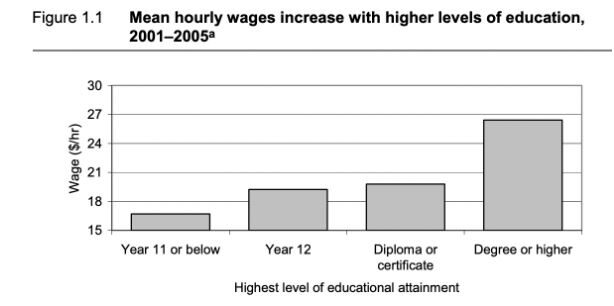Student submission by Amelia Reilly
INTRODUCTION
As the push for a more sustainable future gains traction worldwide, a critical area for consideration is education. The sustainable development goal (SDG) four (4) focuses primarily on ensuring all individuals have access to high-quality education and consequently aims to foster opportunities of lifelong learning for everyone by 2023 (1).
UNDERSTANDING THE PROBLEM
Access to inclusive, quality education remains challenging for millions across the world. Barriers are particularly prominent for lower socioeconomic areas, remote areas, refugee camps and countries facing political and financial uncertainty (1). Gender disparities also remain a challenge as recent UIS data recorded nine million girls will never have the opportunity to see the inside of a classroom compared to three million boys (2).
MY PERSPECTIVE
Having previously worked with students at the primary and secondary levels providing private tutoring, this issue has resonated deeply. I have witnessed firsthand the pure joy and transformative power of education on children and young adults. My tutoring experiences have primarily involved working children within my local community, who could afford private tutoring in addition to school fees.
THE IDEA: TUTORING4TOMORROW
To address the challenges highlighted above and assist in the achievement of SDG4 I suggest establishing a tutoring organization in Australia that provides educational resources to communities and allocates 10% of each tutorial session proceeds to a foundation dedicated to achieving quality education.
PARTICULARS
1. Practical implementation
The Tutoring4Tomorrow organisation will team up with a foundation such as ‘Good Neighbours Australia’ to facilitate funding to areas in need (3).
Tutoring 4 Tomorrow will provide 10% of each tutoring session in Australia and forward educational resources to communities who have no access to the internet.
With backing from governmental funding, Tutoring4Tomorrow will organize educational events, during which experienced tutors will travel to communities and deliver educational support.
2. Financials
In my personal experience, this industry is highly profitable due to its non-perishable product (tutorial services) and minimal expenses (educational resources and training).
3. Incentives and perspectives
Government
From the government’s viewpoint, the funding allocated to Tutoring4Tomorrow serves as a future investment. Research from the Australian Government Productivity Commission demonstrates that higher education levels, both domestically and internationally, are linked to reduced illness rates and higher earnings (4).
Additionally, completion of secondary education or higher is shown to boost wages by 10 to 14 percent’s as seen in figure 1.1 (4), thereby boosting economic activity and increasing workforce participation.

Tutoring4Tomorrow
From the perspective of the organization’s standpoint, this serves as a marketing incentive, as clients are more inclined to invest in tutoring services that not only offer academic support but also contribute to aiding individuals affected by educational deficiencies.
CONCLUDING
To make this vision a reality in the next six years partnerships with stakeholders including the government, tech companies, educational institutions and not-for-profit organisations are essential. Together, we can make provide the joy and transformative power of education I have experienced here in Melbourne accessible to millions of susceptible children around the world.
References
- Goal 4: Quality Education (2023) Monash Sustainable Development Institute. Available at: https://www.monash.edu/msdi/about/sustainable-development/sdg-guide/quality-education (Accessed: 23 March 2024).
- Sihq (2020) How can we achieve the global education goal SDG 4?, Soroptimist International. Available at: https://www.soroptimistinternational.org/how-can-we-achieve-the-global-education-goal-sdg-4/ (Accessed: 23 March 2024).
- Kaur, P. and Sandoval, S. (2024) Good change for the world, Good Neighbours Australia. Available at: https://www.goodneighbours.com.au/?gad_source=1&gclid=Cj0KCQjw2PSvBhDjARIsAKc2cgPMdAjFyskYL5iTQ2IS2cX3KUyE2H2D0S-DI3hJeMWHklGtlnmpXnwaAuPaEALw_wcB (Accessed: 23 March 2024).
- Forbes, M., Barker, A. and Turner, S. (2010) The Effects of Education and Health on Wages and Productivity, Productivity Commission Staff Working Paper, Melbourne, March.




